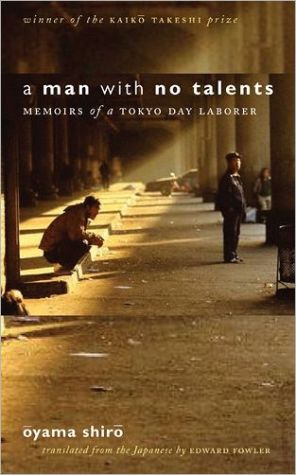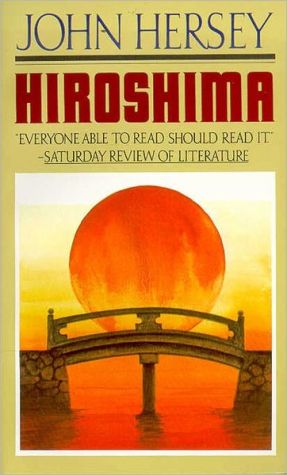A Man with No Talents: Memoirs of a Tokyo Day Laborer
San'ya, Tokyo's largest day-laborer quarter and the only one with lodgings, had been Oyama Shiro's home for twelve years when he took up his pen and began writing about his life as a resident of Tokyo's most notorious neighborhood. After completing a university education, Oyama entered the business workforce and appeared destined to walk the same path as many a "salaryman." A singular temperament and a deep loathing of conformity, however, altered his career trajectory dramatically. Oyama...
Search in google:
"Oyama Shiro is not merely a close observer and a good writer. He is a highly intelligent individual. Moving according to convention through the life stages of a postwar Japanese male, Oyama finished high school and completed a four-year course at a Japanese university. He then entered a white-collar firm and embarked on a proper work career. He finally dropped out of the corporate rat race completely to sink into the world of casual labor. He thus brings to his work a sensibility that is rooted in the conventional norms of middle-class corporate Japan but tempered by a deep knowledge of what befalls those who opt out. His hard-won self-knowledge, attained under what must have been painful personal experience and conveyed through poignant writing, elevates this book to the status of a classic of its kind. A Man with No Talents is an unusual, and unusually inviting, work of humane observation and reflection."-Gary D. Allinson, Ellen Bayard Weedon Professor of East Asian Studies, University of Virginia, author of Japan's Postwar History "We must be grateful to Edward Fowler for translating this book about San'ya, the 'slum' of which the Japanese are proudest. I too am strongly drawn to the place. I am not sure it is a slum. It is very poor certainly but it has a sad lyricism that makes it something else."-Edward Seidensticker, Professor Emeritus, Columbia University Library Journal Japan is a country where everyone is safely middle class, right? The pseudonymous author and his translator, Fowler (Japanese literature & film, Univ. of California, Irvine), want us to know otherwise. Fowler's San'ya Blues: Laboring Life in Contemporary Tokyo was an ethnographic study and oral history of Tokyo's largest and most notorious yaseba, or day-labor market. Here he translates the memoirs of one of San'ya's long-term residents, a university graduate who left the world of the "salaryman," perhaps suffering from depression, perhaps to elude the web of conformity and predictability, to become a day laborer. The book, published in Japan in 2000 and here with a new afterword by its author, surprised readers with its lack of sentimentality or condescension and was awarded one of the nation's top literary prizes. As Oyama describes getting daily jobs, losing them, and living in a doya (day lodging), his sharply observed anecdotes show us the pain of a life without security but also its independence. A fascinating story though not a happy one; recommended for larger and specialist libraries.-Charles W. Hayford, Northwestern Univ., Evanston IL Copyright 2005 Reed Business Information.
\ From the Publisher"Oyama Shiro is not merely a close observer and a good writer. He is a highly intelligent individual. Moving according to convention through the life stages of a postwar Japanese male, Oyama finished high school and completed a four-year course at a Japanese university. He then entered a white-collar firm and embarked on a proper work career. He finally dropped out of the corporate rat race completely to sink into the world of casual labor. He thus brings to his work a sensibility that is rooted in the conventional norms of middle-class corporate Japan but tempered by a deep knowledge of what befalls those who opt out. His hard-won self-knowledge, attained under what must have been painful personal experience and conveyed through poignant writing, elevates this book to the status of a classic of its kind. A Man with No Talents is an unusual, and unusually inviting, work of humane observation and reflection."-Gary D. Allinson, author of Japan's Postwar History\ "We must be grateful to Edward Fowler for translating this book about San'ya, the 'slum' of which the Japanese are proudest. I too am strongly drawn to the place. I am not sure it is a slum. It is very poor certainly but it has a sad lyricism that makes it something else."-Edward Seidensticker, Professor Emeritus, Columbia University\ "To escape the conformity of life as a salary man, Oyama . . . dropped, rung after rung, to the depths of Sandy, Tokyo's largest day-laborer quarter, and found . . . a society in many ways worse but in all ways more open. He discovered that there were still rules but that the rules were quite different. . . . Oyama's account of this strange, poignant, terrifying world he found at the bottom of society . . . is a remarkable document, a completely honest account of a kind of life not often spoken of, in a translation that reveals both the life and the man himself-shrewd, observant, rational. Oyama never beheld the kind of lofty or beautiful human spirit that people somehow expect to witness at the bottom of society, but he himself exhibits it."-Donald Ritchie, The Japan Times, 30 October 2005\ "In Tokyo's San'ya district, day laborers live in crowded, smelly bunkhouses (doe) and rise early each morning to visit the San'ya Welfare Recruiting Office, where the competition is fierce for backbreaking work that pays paltry wages. Oyama (a pseudonym), a college graduate who dropped out of the corporate world at age 40, lived in San'ya for 12 years, six of them during the 1980s 'bubble economy' and six after its collapse. At some point, he began writing down his experiences, and submitted his manuscript to a competition 'as a lark.' He won, but declined to attend the award ceremony, and continues to live on the streets of Tokyo, albeit in a different neighborhood. He has a self-described 'inability to interact with other people,' and translator Fowler acknowledges that even among day laborers, Oyama is particularly eccentric. But the narrative here is generally strong and engaging. To those interested in Japanese culture, this book will surely be an intriguing look at an obscure aspect of the culture."-Publishers Weekly\ "Although Oyama's dim view of himself and others recalls the rankings of Dostoevsky's Underground Man, his tone is resigned, even serene. This meditative memoir won a literary prize in Japan; since then, Oyama reports in an epilogue, he has left San'ya to live on the streets, scraping by with the award money from his book and looking forward to the 'thrill' of one day scavenging for food."-The New Yorker, 11 November 2005\ "A Man with No Talents is at once a memoir, a piece of social anthropology, a history of and an ode to San'ya. . . . It gives a voice to a silent population of Tokyo"The homeless, the dispossessed and social outcast, those bearing the shame of unemployment and those for whom San'ya, more than a place, a disappearing way of a life, is a 'social outlet' and a choice. . . . Its author is a complex character and, like the book, full of contradictions; a cuttingly keen observer, he is at times opaque to himself, full of prejudices and odd philosophies, deeply flawed and almost misanthropic. He is arrogant and judgmental, yet regards himself as 'dull-witted and unattractive,' believes pride poses the greatest danger to the day-laborer and has worked to 'shrink his ego' and to bring his 'inmost self closer to the self that others . . . expect."-Kate Salter, Times Literary Supplement, 3 February 2006\ "The man in these pages is neither unattractive nor dull witted. He's a pathological loner who has slept only with prostitutes, has never formed a friendship that lasted, and has avoided his family for more than twenty years. But such failings are hardly uncommon in the economic stratum he inhabits. Nor-and this is odd-does he seem rebellious or even difficult. . . . Oyama Shiro may be living on the street, and perhaps rummaging through the garbage for dinner, but to those who read this splendid book, his true self will seem a model of decorum and restraint."-Benjamin Cheever, Wilson Quarterly, Winter 2006\ \ \ \ \ \ Library JournalJapan is a country where everyone is safely middle class, right? The pseudonymous author and his translator, Fowler (Japanese literature & film, Univ. of California, Irvine), want us to know otherwise. Fowler's San'ya Blues: Laboring Life in Contemporary Tokyo was an ethnographic study and oral history of Tokyo's largest and most notorious yaseba, or day-labor market. Here he translates the memoirs of one of San'ya's long-term residents, a university graduate who left the world of the "salaryman," perhaps suffering from depression, perhaps to elude the web of conformity and predictability, to become a day laborer. The book, published in Japan in 2000 and here with a new afterword by its author, surprised readers with its lack of sentimentality or condescension and was awarded one of the nation's top literary prizes. As Oyama describes getting daily jobs, losing them, and living in a doya (day lodging), his sharply observed anecdotes show us the pain of a life without security but also its independence. A fascinating story though not a happy one; recommended for larger and specialist libraries.-Charles W. Hayford, Northwestern Univ., Evanston IL Copyright 2005 Reed Business Information.\ \








